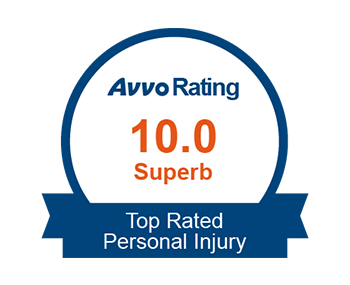Navigating the decision to place a loved one in a nursing home can be overwhelming. The hope is always that they will receive the care and attention they need. Unfortunately, this is not always the case. Neglect in nursing homes is an unfortunate reality that can have serious consequences for residents. If you suspect that your loved one is experiencing neglect in a nursing home in New York, it is crucial to understand the steps you can take to advocate for them effectively. With knowledge, determination, and the right legal support, you can ensure that your loved one receives the care they deserve.
Recognizing the Signs of Neglect
Understanding what constitutes neglect is the first step in advocating for your loved one. Neglect in nursing homes can manifest in many ways, including physical, emotional, and medical neglect. Physical neglect may involve failing to provide proper nutrition, hydration, and personal hygiene. Emotional neglect might include ignoring the resident’s emotional needs, leading to feelings of isolation and depression. Medical neglect occurs when the staff fails to provide necessary medical care, medication, or treatment.
Recognizing the signs of neglect is crucial in taking action. Physical signs such as unexplained bruises, bedsores, or weight loss may indicate neglect. Emotional changes, such as withdrawal, agitation, or mood swings, can also signal a problem. Pay close attention to your loved one’s behavior and overall well-being. If you notice any signs that raise concern, it is essential to take immediate action.
Documenting Evidence of Neglect
When advocating for your loved one, documentation is key. Collecting evidence can help build a strong case against the nursing home and ensure that your concerns are taken seriously. Start by maintaining a detailed record of your observations. Note any physical or emotional changes you observe in your loved one, as well as the dates and times of your visits. Photographs can be invaluable in documenting physical signs of neglect, such as bruises or bedsores. Take pictures that clearly show the condition of your loved one and any evidence of neglect.
Keep records of all interactions with nursing home staff, including names, dates, and times. Note any conversations about your loved one’s care and any promises or commitments made by the staff. Additionally, preserve copies of medical records, prescriptions, and care plans. This documentation can help demonstrate a pattern of neglect and provide evidence to support your claims.
Communicating with Nursing Home Staff and Management
Effective communication with nursing home staff and management is crucial when advocating for your loved one. Start by expressing your concerns calmly and respectfully. Request a meeting with the staff responsible for your loved one’s care, including nurses and caregivers. During the meeting, present your observations and concerns. Use your documentation to support your claims and provide specific examples of neglect.
It is essential to remain assertive and persistent. If your concerns are dismissed or not taken seriously, escalate the issue to higher management or the nursing home administrator. Request a written response outlining the steps the nursing home will take to address the neglect. Keep a record of all communications, including emails and letters, to create a paper trail of your efforts.
The team is very personable, patient and empathetic with their clients. They are upfront with you and will explain the entire process with you, they never lead you to believe otherwise, they tell you like it is and will not sell you a million dollar dream. Trust in Andrews, Bernstein & Maranto, PLLC, they work for you and he looks out for your best interest.” - Jane D.
Understanding New York State Regulations and Reporting Neglect
Familiarizing yourself with New York state regulations governing nursing homes can empower you in your advocacy efforts. The New York State Department of Health oversees nursing home regulations and enforces standards of care. Understanding these regulations can help you identify violations and hold the nursing home accountable for neglectful practices.
If you believe that your loved one is a victim of neglect, it is crucial to report the issue to the appropriate authorities. Contact the New York State Department of Health and file a complaint. Provide them with all the evidence you have collected, including documentation, photographs, and medical records. Reporting neglect is an important step in ensuring that the nursing home is investigated and held responsible for any violations.
Seeking Legal Assistance
Advocating for your loved one in a neglectful nursing home can be a challenging and emotional process. Seeking legal assistance can provide you with the support and guidance needed to navigate the complexities of nursing home neglect cases. An attorney with experience in elder law and nursing home neglect can help you understand your legal rights and options.
A lawyer can assist in gathering additional evidence, filing legal claims, and representing you in negotiations or court proceedings. They can also help you seek compensation for any damages or injuries your loved one has suffered as a result of neglect. With a legal advocate by your side, you can ensure that your loved one’s rights are protected and that they receive the care and justice they deserve.
Taking Steps to Protect Your Loved One
In addition to addressing neglect, it is crucial to take steps to protect your loved one from further harm. Consider moving them to a safer environment where they can receive the care and attention they need. Research alternative nursing homes or assisted living facilities in your area. Visit these facilities in person, ask questions about their care practices, and review their inspection reports.
Involve your loved one’s healthcare provider in the decision-making process. They can offer valuable insights and recommendations based on your loved one’s medical needs. Ensure that your loved one’s medical records are transferred to the new facility and that their care plan is updated accordingly.
Should I Take The First Settlement Offer? Steps to File a Personal Injury ClaimRelated Videos
Supporting Your Loved One Emotionally
Experiencing neglect in a nursing home can take a toll on your loved one’s emotional well-being. As their advocate, it is essential to provide them with emotional support and reassurance. Spend time with them regularly, engage in activities they enjoy, and encourage open communication. Let them know that you are there to support them and that their well-being is your priority.
Consider involving a mental health professional if your loved one is struggling with the emotional impact of neglect. Counseling or therapy can provide them with a safe space to express their feelings and work through any trauma they may have experienced. Emotional support is a vital component of the healing process and can help your loved one regain a sense of security and confidence.
Educating Yourself and Others
Advocating for your loved one involves continuous learning and education. Stay informed about nursing home regulations, residents’ rights, and best practices for care. Knowledge is a powerful tool in holding nursing homes accountable and ensuring that your loved one receives the care they deserve.
Share your knowledge with other family members and caregivers. Educate them about the signs of neglect, the importance of documentation, and the steps to take if neglect is suspected. Building a network of informed advocates can create a supportive community dedicated to protecting the rights and well-being of nursing home residents.
Verdicts & Settlements
Promoting Change and Awareness
While advocating for your loved one, consider taking steps to promote change and awareness on a broader scale. Engage with advocacy groups and organizations dedicated to improving nursing home care and protecting residents’ rights. Participate in community events and initiatives that raise awareness about nursing home neglect.
Advocating for policy changes and improved regulations can contribute to a safer and more accountable nursing home system. Share your experiences and insights with policymakers and legislators. Your voice can make a difference in shaping policies that prioritize the well-being and safety of nursing home residents.
The Role of Legal Professionals in Nursing Home Advocacy
Legal professionals play a crucial role in advocating for nursing home residents and holding facilities accountable for neglectful practices. Attorneys with experience in elder law and nursing home neglect cases are well-equipped to navigate the complexities of these cases and advocate for their clients’ rights.
In addition to providing legal representation, lawyers can assist families in understanding the intricacies of nursing home regulations and residents’ rights. They can help gather evidence, file complaints, and pursue legal claims against neglectful nursing homes. With their experience, legal professionals can guide families through the legal process and ensure that their loved ones receive the care and justice they deserve.
Advocate for Your Loved One with Andrews, Bernstein & Maranto, PLLC
If you suspect that your loved one is experiencing neglect in a nursing home in New York, it is crucial to take action. At Andrews, Bernstein & Maranto, PLLC, we are dedicated to advocating for nursing home residents and holding facilities accountable for neglectful practices. Our team of experienced attorneys is here to provide you with the support and guidance needed to protect your loved one’s rights and well-being. Contact us today to schedule a consultation and learn more about how we can assist you in advocating for your loved one. Together, we can work towards ensuring that your loved one receives the care and dignity they deserve.












